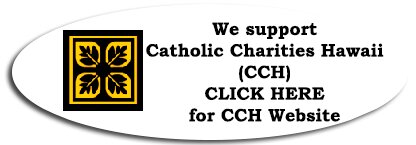Best International Trade Law Lawyers in Hawaii
Share your needs with us, get contacted by law firms.
Free. Takes 2 min.
Or refine your search by selecting a city:
List of the best lawyers in Hawaii, United States
About International Trade Law in Hawaii, United States
International Trade Law refers to the legal framework governing the exchange of goods, services, and capital across international borders. In Hawaii, a state uniquely positioned in the Pacific with a thriving port, strategic location, and diverse economic ties, international trade law often blends federal regulations, state policies, customs procedures, and global treaties. Businesses, individuals, and government agencies in Hawaii must comply with both United States federal trade laws as well as state-specific requirements, which can pertain to tariffs, customs regulations, import and export controls, environmental compliance, and more.
Why You May Need a Lawyer
Engaging in international trade can be complex due to the patchwork of laws and regulations at the state, federal, and international levels. Common situations where you might need a lawyer include:
- Starting or expanding your import or export business in Hawaii
- Navigating U.S. Customs and Border Protection (CBP) procedures
- Understanding and dealing with trade tariffs, embargoes, or sanctions
- Drafting or reviewing international sales, shipping, or distribution contracts
- Responding to customs audits, fines, or enforcement actions
- Resolving international trade disputes, including arbitration and mediation
- Protecting your intellectual property when conducting business overseas
- Ensuring compliance with export control laws, especially when exporting sensitive technologies
- Adhering to rules regarding the importation of agricultural, wildlife, or other regulated products into Hawaii
Local Laws Overview
While most international trade law is governed by federal statutes, Hawaii has unique local factors that may affect international transactions:
- Maritime regulations are critically important due to the Jones Act, which affects shipping between U.S. ports, including Hawaii, and can have significant cost implications for businesses
- State agricultural import restrictions aim to protect Hawaii’s environment and unique flora and fauna from invasive species
- Environmental regulations are strictly enforced, especially for shipments that could impact Hawaii's natural resources
- Compliance with the Hawaii Administrative Rules (HAR) and Department of Agriculture requirements is necessary for many imports and exports
- Specific state taxes and port fees can apply to certain imports, exports, and shipping activities through Hawaii’s harbors
In all cases, close attention must be paid to both federal law, such as the Export Administration Regulations (EAR) and the International Traffic in Arms Regulations (ITAR), and local statutes and rules.
Frequently Asked Questions
What is international trade law?
International trade law is the body of laws and regulations that govern the exchange of goods, services, and money across national borders. It covers customs procedures, import and export restrictions, trade agreements, tariffs, and dispute resolution processes.
How does Hawaii’s location impact international trade law issues?
Hawaii’s geographic position in the Pacific makes it a hub for trade between the United States and Asia-Pacific countries. This results in heightened customs activity, specific harbor regulations, and unique state regulations that impact imports and exports.
Can anyone in Hawaii import or export goods internationally?
While most businesses and individuals can engage in international trade, there are licensing requirements, import and export controls, and product restrictions. Some goods require special permits or may be prohibited.
What are the key federal agencies involved in regulating trade in Hawaii?
Key agencies include U.S. Customs and Border Protection (CBP), the U.S. Department of Commerce, the U.S. Department of Agriculture (USDA), and the Department of Homeland Security. State agencies may also play a significant role.
Are there unique Hawaii state laws related to international trade?
Yes. Hawaii has laws and regulations concerning invasive species, agriculture, harbor and shipping operations, and environmental protection that often affect trade activities more than in other states.
What is the Jones Act and how does it affect trade in Hawaii?
The Jones Act is a federal law requiring goods shipped between U.S. ports to be transported on U.S.-built and -crewed vessels. This law impacts shipping costs and practices for businesses operating in Hawaii.
What are common legal issues that arise in international trade in Hawaii?
Typical issues include customs clearance delays, compliance with export controls, disputes over international contracts, tariff classification, shipment of regulated goods, and penalties for non-compliance.
What steps should I take before importing or exporting a regulated product to or from Hawaii?
You should verify federal and state licensing and import/export requirements, check for any relevant restrictions or bans, prepare all required documentation, and consult legal counsel if you are unsure about compliance.
What happens if I violate trade regulations in Hawaii?
Violations can result in fines, shipment seizures, business license suspension, and even criminal penalties in severe cases. Early legal advice is recommended to address and resolve any such issue.
How can a lawyer help with international trade law matters in Hawaii?
A lawyer can interpret complex local and federal laws, assist with documentation, represent you in disputes, advise on compliance procedures, and help protect your business interests during international transactions.
Additional Resources
When navigating international trade law in Hawaii, you may find these resources helpful:
- U.S. Customs and Border Protection (CBP) - for customs and border information
- Hawaii Department of Agriculture - for agricultural imports and pest restrictions
- Hawaii Department of Business, Economic Development and Tourism (DBEDT) - for business guidance and trade initiatives
- Small Business Administration (SBA) Hawaii District Office - for support to businesses engaged in trade
- Pacific Basin Development Council - for regional trade information and advocacy
- Hawaii Foreign-Trade Zone No. 9 - for information about customs advantages and logistics
- U.S. Department of Commerce - Bureau of Industry and Security, for export control rules
- University of Hawaii’s law library and Pacific-Asia Legal Studies resources
Next Steps
If you are planning to engage in international trade in Hawaii or are currently facing a trade-related legal challenge, consider the following steps:
- Determine the nature and scope of your trade activity, including products, markets, and partners involved
- Review relevant federal and Hawaii state laws that apply to your specific trade or investment
- Gather all necessary documents, permits, and licenses for your planned activity
- Consult a qualified attorney with experience in international trade law and Hawaii’s unique regulatory landscape
- Reach out to the additional resources listed above for initial guidance or educational materials
- Maintain close communication with regulatory agencies to ensure full compliance
- If disputes or compliance issues arise, seek early legal advice to protect your interests and resolve matters efficiently
Being proactive and well-informed is critical to successfully and lawfully conducting international trade in Hawaii. Engaging a knowledgeable lawyer will help you navigate the complexities and mitigate risks associated with international business.
Lawzana helps you find the best lawyers and law firms in Hawaii through a curated and pre-screened list of qualified legal professionals. Our platform offers rankings and detailed profiles of attorneys and law firms, allowing you to compare based on practice areas, including International Trade Law, experience, and client feedback.
Each profile includes a description of the firm's areas of practice, client reviews, team members and partners, year of establishment, spoken languages, office locations, contact information, social media presence, and any published articles or resources. Most firms on our platform speak English and are experienced in both local and international legal matters.
Get a quote from top-rated law firms in Hawaii, United States — quickly, securely, and without unnecessary hassle.
Disclaimer:
The information provided on this page is for general informational purposes only and does not constitute legal advice. While we strive to ensure the accuracy and relevance of the content, legal information may change over time, and interpretations of the law can vary. You should always consult with a qualified legal professional for advice specific to your situation.
We disclaim all liability for actions taken or not taken based on the content of this page. If you believe any information is incorrect or outdated, please contact us, and we will review and update it where appropriate.
Browse international trade law law firms by city in Hawaii
Refine your search by selecting a city.











